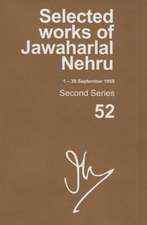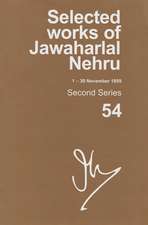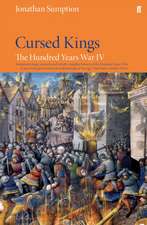Secret Science: A Century of Poison Warfare and Human Experiments
Autor Ulf Schmidten Limba Engleză Hardback – 9 iul 2015
| Toate formatele și edițiile | Preț | Express |
|---|---|---|
| Paperback (1) | 117.54 lei 10-16 zile | |
| OUP OXFORD – 20 iun 2019 | 117.54 lei 10-16 zile | |
| Hardback (1) | 163.78 lei 10-16 zile | |
| OUP OXFORD – 9 iul 2015 | 163.78 lei 10-16 zile |
Preț: 163.78 lei
Preț vechi: 192.38 lei
-15% Nou
Puncte Express: 246
Preț estimativ în valută:
31.35€ • 34.06$ • 26.35£
31.35€ • 34.06$ • 26.35£
Carte disponibilă
Livrare economică 19-25 martie
Preluare comenzi: 021 569.72.76
Specificații
ISBN-13: 9780199299799
ISBN-10: 019929979X
Pagini: 672
Ilustrații: numerous black and white figures/illustrations
Dimensiuni: 162 x 239 x 41 mm
Greutate: 1.11 kg
Editura: OUP OXFORD
Colecția OUP Oxford
Locul publicării:Oxford, United Kingdom
ISBN-10: 019929979X
Pagini: 672
Ilustrații: numerous black and white figures/illustrations
Dimensiuni: 162 x 239 x 41 mm
Greutate: 1.11 kg
Editura: OUP OXFORD
Colecția OUP Oxford
Locul publicării:Oxford, United Kingdom
Recenzii
Ulf Schmidt deserves praise for writing such a comprehensive and clear book... this is an impressive work.
This massive piece of research, though far from easy or pleasant reading, fills and important gap. Whether we agree with it or not, at least we know what has been going on.
If you've ever wondered what really went on behind the barbed wire fences and guarded doors in labs like [Porton Down], Secret Science provides as thoroughly researched and comprehensive an account as you are likely to get.
This monumental history of twentieth-century military medical ethics is a meticulous record of ambiguity.
Drawing on unprecedented access to surviving records, Secret Science is an important and groundbreaking work by an author suited perfectly to tackling the topic. Schmidt is a specialist in the history of medical ethics and modern warfare-in 2004, he was an expert witness in the inquest that finally revealed the details of Ronald Maddison's death-and knows very well that a historian's priorities are to improve knowledge and understanding and not to dish out blame.
compelling both as an enlightening account of shocking human experiments that have taken place over the last century and as an important contribution to literature on the history of medical ethics and the culture, networks and politics of military research in general.
Schmidt's book is a welcome addition to the literature and represents a view of chemical warfare that is focused on the medical and political side rather than the military aspects of the weapons.
This massive piece of research, though far from easy or pleasant reading, fills and important gap. Whether we agree with it or not, at least we know what has been going on.
If you've ever wondered what really went on behind the barbed wire fences and guarded doors in labs like [Porton Down], Secret Science provides as thoroughly researched and comprehensive an account as you are likely to get.
This monumental history of twentieth-century military medical ethics is a meticulous record of ambiguity.
Drawing on unprecedented access to surviving records, Secret Science is an important and groundbreaking work by an author suited perfectly to tackling the topic. Schmidt is a specialist in the history of medical ethics and modern warfare-in 2004, he was an expert witness in the inquest that finally revealed the details of Ronald Maddison's death-and knows very well that a historian's priorities are to improve knowledge and understanding and not to dish out blame.
compelling both as an enlightening account of shocking human experiments that have taken place over the last century and as an important contribution to literature on the history of medical ethics and the culture, networks and politics of military research in general.
Schmidt's book is a welcome addition to the literature and represents a view of chemical warfare that is focused on the medical and political side rather than the military aspects of the weapons.
Notă biografică
Ulf Schmidt is Professor of Modern History at the University of Kent, and a Fellow of the Royal Historical Society. He was previously Wellcome Trust Post-Doctoral Research Fellow, Senior Associate Member of St Antony's College, Oxford, and Research Associate at the Wellcome Unit for the History of Medicine at the University of Oxford.His research interests are in the area of the history of modern medical ethics, warfare and policy in twentieth-century Europe and the United States. He has published widely on the history of Nazi Germany, the history of human experimentation, the Nuremberg Doctors' Trial and the Nuremberg Code, the history of eugenics and euthanasia, and the history of medical film and propaganda.









